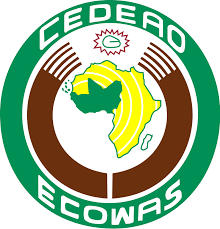Lagos, June 2, 2023 – The trade volume between Nigeria and Indonesia is more than $4.7 billion, surpassing the initial target of $4 billion.
Ishmael Balogun, the President of Nigerian-Indonesian Chamber of Commerce and Industry (NICCI), said this during a two-day Equipment and Manufacturing West Africa 2023 Exhibition and Conference in Lagos.
He said that the chamber had decided to address the trade imbalance between the two countries which stood at $2.8 billion at the first Nigerian-Indonesia Trade Forum (NITF) in Jakarta.
Balogun said that in order to redress the trade imbalance, a target of $4 billion was then set, but this had been surpassed as the trade volume between the two countries had grown up to $4.7 billion.
“We are not relenting in our efforts, but we are doubling up on creating awareness and exploring opportunities between both nations and the global village across various sectors of the economy.
“The Nigerian Indonesia Chamber of Commerce and Industry is poised to support the growth and development of our members in their quest to meet individual and corporate objectives.
“From June 14 to 21, we warmly invite everyone to join us in Bali, Indonesia; the number one tourism destination in the world for the 9th edition of the Bali beyond fair.
“In October 2023, we will invite you to join us for the 38th edition of the Indonesia Trade Expo and the second edition of the Nigerian Investment and Trade Forum due to the success of the first edition,” he said.
Balogun advised the federal government to create industrial clusters and adopt renewable energy sources which are critical factors for manufacturing profitability and economic growth in Nigeria.
He also advised the government to become more deliberate about the manufacturing sector to increase its contribution to the Gross Domestic Product.
Balogun said Nigeria’s manufacturing sector had the potential, but was operating within limited capacity due to the various challenges like power generation and supply.
He reiterated the need for government to create industrial clusters identifiable to a community or locality-specific area of strength.
These clusters, he said, would engender shared power supply, human and natural resources, increase revenue and reduce crime in societies because people are gainfully employed.
“The strength of this nation includes abundant natural resources and a huge trainable population, but there is a need to relax collateral requirements and promote alternative financing models to drive industrialisation.
“Government needs to streamline and simplify regulatory processes and create stable predictable policy environment and engage stakeholders in policy formulation.
“While Nigeria faces several challenges in the manufacturing sector, there are feasible solutions to overcome them, such as infrastructure development including transportation networks, adequate power supply, and creation of industrial parks and clusters.
“Improved access to finance through specialised lending programmes and reduced interest rates would stimulate investments.
“Government must provide policy reforms that streamline regulations and provide clarity to attract investors and drive manufacturing activities.”
Mrs Adetutu Ososanya, the Permanent Secretary in Lagos State Ministry of Commerce, Industry, and Cooperatives, said the state government was committed to restructuring existing industrial clusters, engaging investors and development partners to facilitate energy generation for small businesses.
She said that although there were several industrial hubs in the state, they were not enough to meet the demand, adding the state government was in talks with partners to develop more clusters to drive industrialisation in the state. (GBN)





